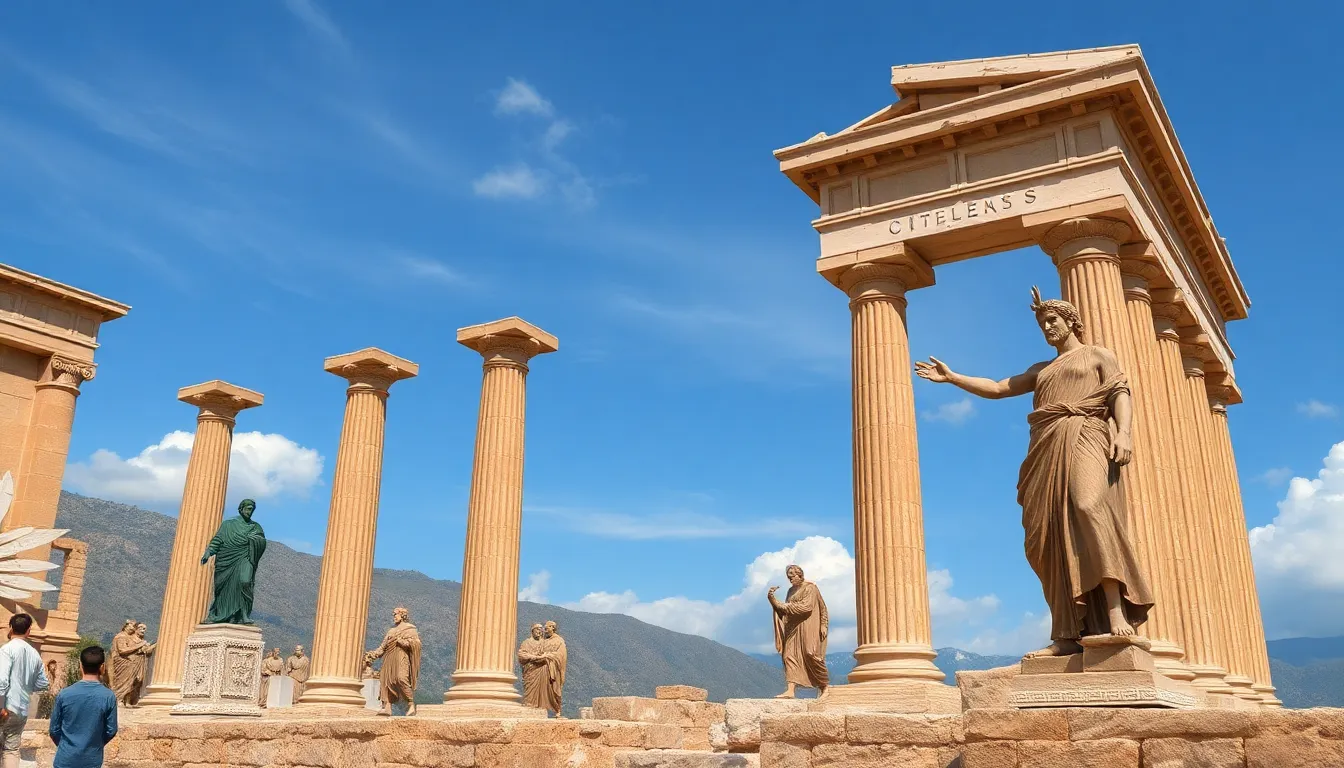Sacred Celebrations: The Festivals That Shaped Greek Culture
I. Introduction
In ancient Greece, sacred celebrations were not merely events but vital components of social and religious life. These festivals served as a means for the Greeks to honor their gods, celebrate their cultural identity, and strengthen community bonds.
Festivals played a crucial role in Greek society, providing opportunities for worship, entertainment, and competition. They allowed citizens of various city-states to come together, share their traditions, and engage in religious practices. This article will explore some of the key festivals that shaped Greek culture, highlighting their significance and impact.
II. The Role of Religion in Greek Festivals
The connection between deities and festivals was fundamental in ancient Greek religion. Each festival was typically dedicated to a specific god or goddess, reflecting the religious beliefs of the time.
- Connection between deities and festivals: Festivals were organized to honor the gods, seeking their favor and blessings for the community.
- Rituals and ceremonies as expressions of faith: Various rituals, such as sacrifices, prayers, and offerings, were performed to demonstrate devotion.
- The role of priests and priestesses in celebrations: Religious leaders were essential in orchestrating the festivals, leading rituals, and ensuring that the ceremonies were conducted according to tradition.
III. The Olympic Games: A Celebration of Physical and Spiritual Excellence
The Olympic Games, held every four years in Olympia, were perhaps the most famous of the sacred celebrations in ancient Greece. Established in 776 BC, these games were dedicated to Zeus and served as a platform for showcasing both physical prowess and spiritual devotion.
- Historical origins and significance of the Olympics: Initially a local festival, the Olympics grew into a Panhellenic event that drew participants from across the Greek world.
- Events and competitions held during the festival: Athletes competed in a variety of events, including running, wrestling, boxing, and chariot racing.
- The impact of the Olympics on Greek identity and unity: The games fostered a sense of shared identity among the diverse city-states and promoted peaceful competition.
IV. Dionysia: The Festival of Wine and Theatre
Dionysia was a festival held in honor of Dionysus, the god of wine, fertility, and theater. It was celebrated in Athens and was marked by a series of dramatic performances and lively celebrations.
- Overview of the Dionysian celebrations: The festival included processions, sacrifices, and theatrical competitions that highlighted the importance of the arts.
- The significance of wine, theater, and drama in Greek culture: Wine symbolized joy and ecstasy, while theater became a vital part of Greek cultural expression.
- Influence of Dionysia on literature and the arts: The festival catalyzed the development of tragic and comic drama, influencing playwrights like Aeschylus, Sophocles, and Euripides.
V. Panhellenic Festivals: Unity Among City-States
In addition to the Olympics, several other Panhellenic festivals fostered unity among the Greek city-states. These included the Pythian, Nemean, and Isthmian Games, each dedicated to different deities.
- Explanation of Panhellenic festivals: These events were held at regular intervals and included athletic competitions, musical contests, and poetic recitals.
- The role of these festivals in fostering inter-city relationships: They provided a platform for diplomacy, trade, and cultural exchange.
- Cultural exchange and competition among the Greek states: Participants and spectators shared ideas, traditions, and innovations, enriching the Greek cultural landscape.
VI. Local Festivals: Celebrating Regional Deities and Traditions
Beyond the major Panhellenic festivals, local celebrations played an essential role in honoring regional deities and fostering community spirit. Festivals like Thesmophoria and Anthesteria were deeply rooted in local customs.
- Overview of local celebrations: These festivals often revolved around agricultural cycles, fertility rites, and seasonal changes.
- The significance of regional identity and agricultural cycles: They reinforced local identities and provided opportunities for communities to come together and celebrate their unique traditions.
- Examples of unique local traditions and their impact on community bonds: Such festivals often included feasting, music, dancing, and communal prayers, strengthening social ties.
VII. The Influence of Festivals on Art and Architecture
Greek festivals not only served religious and social purposes but also inspired remarkable artistic and architectural achievements.
- Festivals as inspiration for artistic expression: Many artworks, including pottery and sculpture, depicted scenes from festivals, showcasing the vibrant culture.
- Architectural developments stemming from sacred celebrations: Temples and theaters were constructed to host festivals, reflecting the grandeur of Greek architecture.
- Notable monuments and structures built for festivals: The Parthenon in Athens and the Theater of Dionysus are prime examples of how festivals influenced architectural design.
VIII. Conclusion
In summary, Greek festivals were a cornerstone of ancient culture, intertwining religion, art, and social life. They provided a means for the Greek people to celebrate their gods, showcase their talents, and unite in shared traditions.
The lasting legacy of these sacred celebrations can still be felt in modern Greek culture, where festivals continue to play a significant role in community life. Understanding these ancient celebrations enriches our knowledge of Greek civilization and its profound influence on Western culture.
Festivals remind us of the importance of community, tradition, and celebration in human societies, both ancient and modern.




